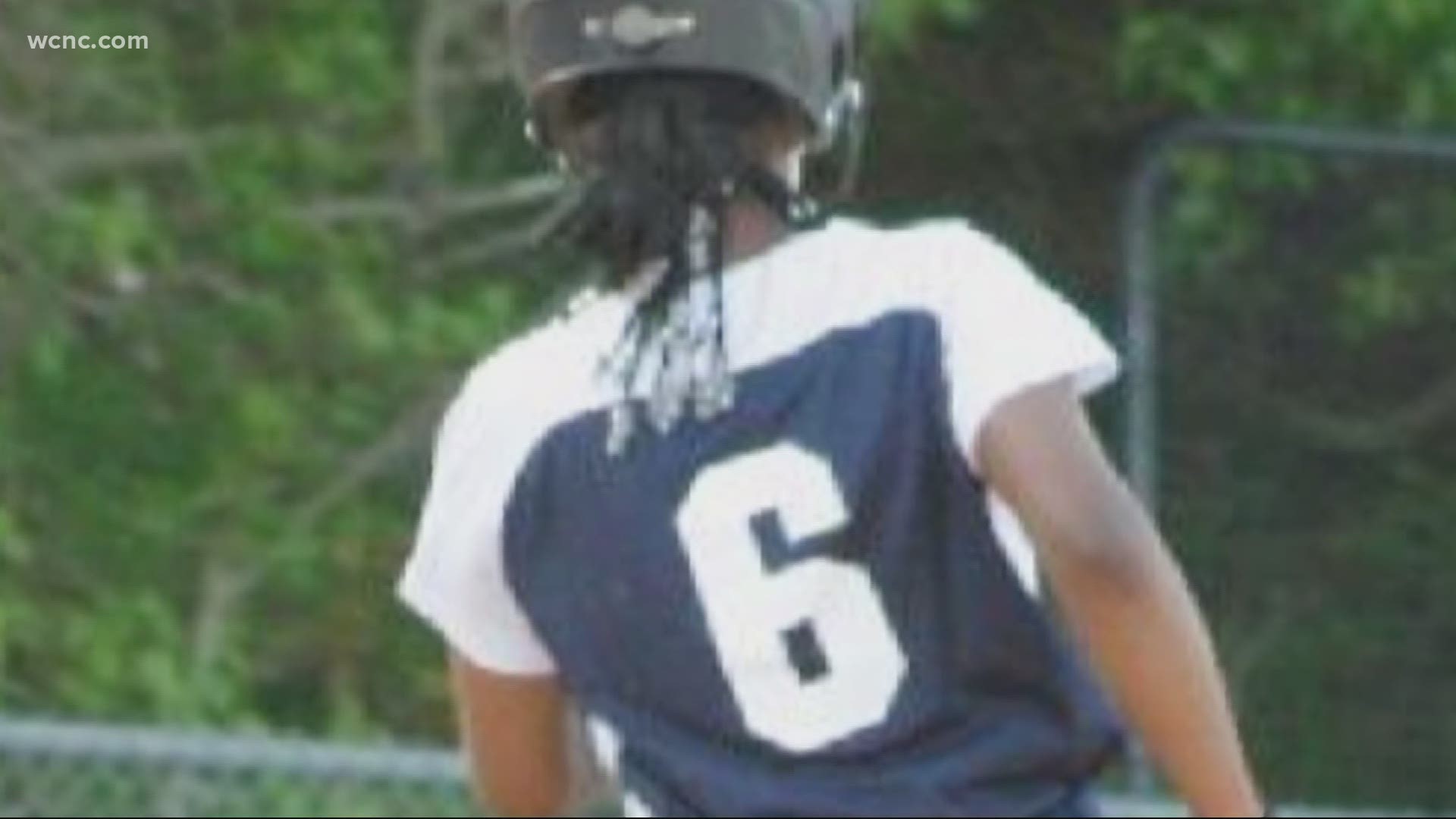DURHAM, N.C. — A North Carolina high school student said she was forced to either cut or hair or sit out the rest of her softball game.
“I was embarrassed, and I was really upset,” Hillside High School sophomore Nicole Pyles said.
Pyles was playing in a game against Jordan High School last month when she said the umpires told her that her hairstyle violated the policies governing uniforms and headwear.
Pyles has worn her hair in its natural state her whole life; recently, she has been wearing it in knotless braids with beads on the bottoms.
In the first inning, the umpires told her that her beads were a safety hazard.
“There was no real safety concern,” Pyles insisted, saying that she has worn beads in her hair in other athletic competitions without issue. “They just said it’s a safety thing and I’m like ‘against who?’”
Pyles said she and her teammates tied her hair back, tucked it into her sports bra, and she continued playing. The following inning, the umpires told her the beads would have to come out entirely or else she could not play in the game.
“To me, it wasn’t a real choice,” she said. “Why would I leave my team out to dry because of some beads?... I felt like I had to cut these beads out and support my team."
Pyles said her teammates in the dugout quickly worked to remove beads from some of her braids, meanwhile, another grabbed a pair of scissors and began cutting the bottom part of her hair.
When her father heard what happened, he said he was furious.
“She didn’t deserve what happened to her,” Julius Pyles said. “Now we have to change our own personas to make somebody else feel good and that’s not right. We’re losing our identities while they’re keeping theirs.”
Julius Pyles told his daughter he would stand by her side in advocating for the policy to change.
Athletic teams across the state of North Carolina adhere to rules set by the National Federation of State High School Associations.
According to the NFHS policy on headwear: “Flat items, no longer than 2 inches, used to control the hair, such as bobby pins, barrettes and hair clips, are permitted. Plastic visors, bandannas and hair-beads are prohibited.”
Pyles said she believes that policy blatantly targets people of color, specifically Black students who are more likely to wear their hair in beaded styles.
“Let’s make rules that won’t obviously single out certain kinds of people,” she said.
The Southern Coalition for Social Justice has joined Pyles in advocating for protection against hair discrimination.
“We know how disheartening that is and that type of trauma stays with somebody for a long time,” Tyler Whittenberg, the chief counsel at SCSJ, said.
The organization is joining calls across the state for lawmakers and policy creators to adopt versions of the CROWN Act. Legislation has passed in ten states that provide protections for certain hairstyles and prevent employers and schools from discriminating on the basis of hair.
A version of the CROWN Act in North Carolina has failed to make it out of committee two years in a row, and likely won’t be introduced next session.
The city of Durham, where Pyles attends school, has adopted its own version of the CROWN Act.
A statement from Durham Public Schools calls the athletic organization’s ban on hair beads “culturally biased and problematic.”
Pyles vowed to continue pushing for change, saying it’s about more than an unwanted haircut.
“Nobody wants to understand,” she said. “I can’t imagine how many other people feel the same way I do but don’t want to come out and speak because there’s so much holding them back from actually coming out and speaking about it.”
Contact Tanya Mendis at tmendis@wcnc.com and follow her on Facebook and Twitter.

